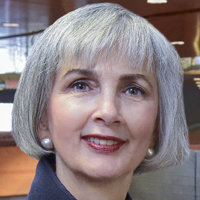
The upcoming review of the Copyright Act presents an opportunity to discuss and debate the state of copyright in Canada and for the library community to offer a vision of how libraries and copyright combine to deliver on public policy goals that benefit society as a whole.
Libraries have a unique societal role to provide equitable access to information and to preserve knowledge in all its forms. In Canada, the Copyright Act has long recognized the special function of libraries. Many of the government’s public policy objectives around research, innovation and lifelong learning are achieved through the Act’s exceptions and limitations for libraries.
Balancing the copyright owner’s rights with the public interest is the objective of the Copyright Act, as explained by the Supreme Court of Canada in the Théberge and CCH cases:
The Copyright Act is usually presented as a balance between promoting the public interest in the encouragement and dissemination of works of the arts and intellect and obtaining a just reward for the creator. The proper balance among these and other public policy objectives lies not only in recognizing the creator’s rights but in giving due weight to their limited nature.
Parliament has achieved balance in the Copyright Act by granting extensive (but limited) economic rights and moral rights to creators and copyright owners, and by granting a few exceptions to these economic rights to users, libraries, archives, museums, educational institutions. These exceptions are intended to serve the public interest, advancing the broader public policy goals noted above.
Fair dealing
In considering the upcoming review, librarians are satisfied with the current fair dealing exceptions in the Act. The public interest is served through the exceptions that cover research, private study, criticism or review, news reporting and private copying. In its 2012 modernization of the Copyright Act, Parliament stressed the importance of limitations and exceptions to copyright by adding the new purposes of parody or satire, education, and user-generated content to fair dealing
The digital environment’s impact on education is complex. Some argue that the 2012 amendment to the Act contributed to a decline in educational publishing revenue, but this is a flawed argument. The shift by libraries to licensed content and by instructors to open educational resources and other freely available Web materials began long before 2012.
User-generated content
The user-generated content (UGC) provision was an innovative improvement introduced in the 2012 amendment. It allows users to creatively interact with works in copyright, producing works that are new, noncommercial works in their own right. Examples of UGC include mashups and fan fiction.
Librarians endorse the expansion of fair dealing and other exceptions, as they promote the use and dissemination of works and innovative interactions that create new works. Calls for the rollback of any of the new uses may upset the balance Parliament has achieved to attain public policy goals.
Alternate format works
Librarians applaud Parliament’s 2016 Copyright Act amendment that updated the provisions covering the creation of alternate format works for persons with perceptual disabilities, in compliance with the 2013 Marrakesh Treaty. Still, librarians will request that this section be amended to remove unnecessary and burdensome conditions. For example, the law requires that the producer of an accessible format work, often a library, use their resources to confirm the work doesn’t already exist somewhere in the marketplace. Also, the producers of the accessible format works may be required to pay royalties to copyright holders, even when those holders made no effort to produce the work in accessible format.
Taken as a whole, the Marrakesh amendment is an important confirmation of the importance of public policy balance. In the face of market failure, it ensures a work can be reproduced in any accessible format; it makes educational, research and lifelong learning materials attainable for people with print disabilities; it recognizes the role of libraries and authorized entities in the reproduction and dissemination of works; and it permits digital locks to be circumvented for public policy reasons.
Digital locks
Librarians will request that three important principles at play in the Marrakesh amendment be applied consistently throughout the Act. First, the Act must apply to works in all formats equally, whether they are print, electronic, cinematographic or otherwise. The exception for persons with perceptual disabilities does not allow for films to be made accessible.
Second, the exceptions in the Act should apply to all libraries that serve the public interest, including libraries in the for profit sector.
Third, and most important, librarians and users must be able to circumvent digital locks applied to certain works in order to exercise their statutory rights. As the Act stands, digital locks cannot be removed – even for legal purposes, such as fair dealing uses. The section on technological protection measures (TPM), as it is currently written, disadvantages digital works. In the print world a legally purchased book may be loaned to another to read. But a lower court in Canada found that lending an article from behind a paywall (a TPM) for a fair dealing use (research) infringed copyright. In order to exercise their statutory responsibilities, librarians will request that the digital-locks provision be amended to clarify that fair dealing uses, other exceptions, and the exceptions for libraries are exempt from the prohibition on circumvention.
Licenses
In the digital environment, much of the electronic content in libraries is acquired under license. This often means that clauses in the licensing contract override fair-dealing uses and other statutory rights for users. Examples include a prohibition on printing or lending of materials between libraries. Fair dealing and other exceptions to copyright must be safeguarded in the licensing environment. Librarians will seek an amendment to prevent contracts from overriding exceptions and limitations. Public policy goals of education and research cannot be achieved if contracts undermine the statutory rights of citizens.
While more and more of a library’s collection is acquired or licensed in digital format, libraries need to pay royalties for uses that are not permitted by licenses or under fair dealing. For example, if a professor includes numerous poems from a collection of poetry in a course reading list, and it exceeds the limits of fair dealing use, the library will pay a transactional fee for the use of the works. For such uses, transactional licenses are negotiated or a blanket license is purchased. Until now, tariff rates for blanket licenses have been proposed by the vendor and in some cases set by the Copyright Board. Given that libraries represent the public interest in the fair application of users’ rights embedded in the Act, librarians will propose that the public interest be represented at the Copyright Board, perhaps with a seat on the board or as an intervenor.
Works in the public domain
Finally, the term of copyright in Canada lasts for the life of the author and for 50 years after death. Once copyright expires the works enter the public domain and can be freely accessed without restriction. A rich and flourishing public domain is essential, as it allows the creative and intellectual achievements of the past — that is, the historical record — to be rediscovered, reused, and embellished to build new knowledge. This serves Canada’s innovation agenda.
Libraries are undertaking massive digitization projects to facilitate access to this rich historical resource and depend on the continuous inflow of new materials as copyrights expire. Any extension of term would impede the digitization works and delay reuse of works. Librarians agree that a term of protection of life plus 50 years quite adequately balances the creator’s rights with the public interest.
Librarians purchase and license works and thus reward the creator, and they serve the public interest through exceptions and limitations, thereby providing access to information to the public, supporting learning, research and innovation, promoting the free flow of information, preserving cultural heritage and encouraging free expression. In short, librarians operate at the fulcrum of copyright’s balance.
This article is part of the Reviewing Canadian Copyright Policy special feature.
Photo: Shutterstock/Woraphon Nusen
Do you have something to say about the article you just read? Be part of the Policy Options discussion, and send in your own submission. Here is a link on how to do it. | Souhaitez-vous réagir à cet article ? Joignez-vous aux débats d’Options politiques et soumettez-nous votre texte en suivant ces directives.









